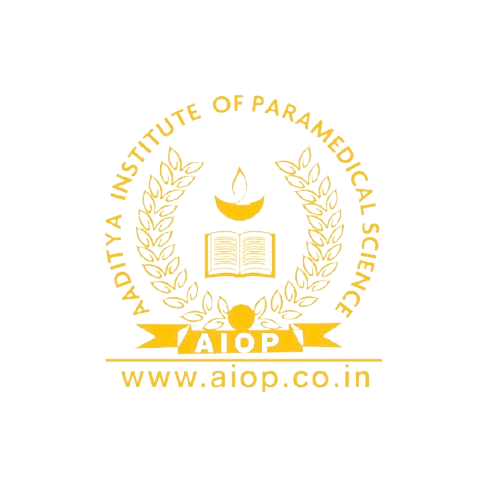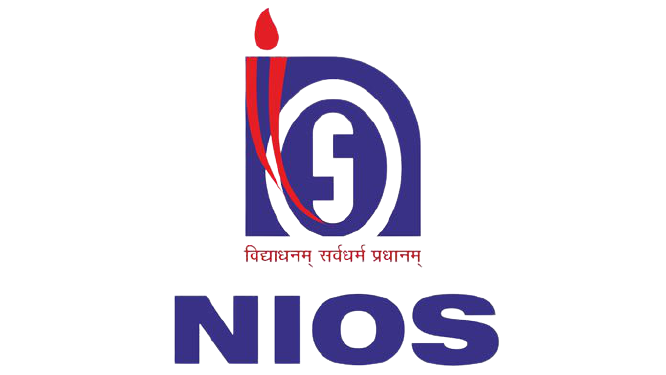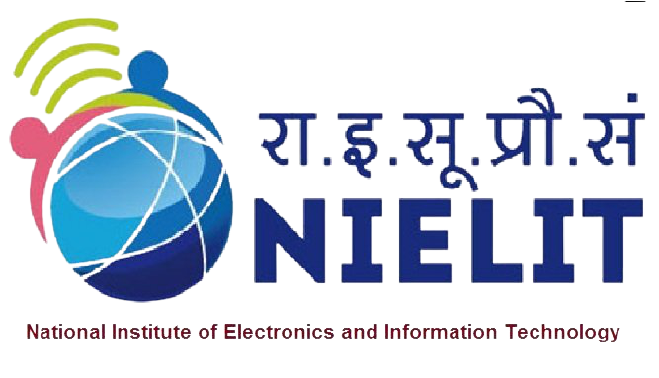School Rules
Institue Rules
Students should be in the Institute premises at least five minutes before the Institute Class timing.
Students are required to put in 90 percent of attendance. Leave of absence is granted only on prior written application from parents except in case of unforeseen circumstances.
Repeated absence without leave written or absence for more than 6 consecutive days renders a student liable to have her name struck off the rolls.
Students are expected to attend the classes on the last working day before the start of the vacation and also the opening day after the vacation.
Leave will not be granted for absence from Institute prior to a Test /Examination.
The students are strictly forbidden to use any make-up, bleaching and colouring of hair, mehndi, nail polish and any other accessories than the prescribed uniform. The offenders will be fined as decided by the Institute.
No items will be accepted at Institute counter or gate.
Cell phones, cameras and any electronic gadgets are strictly forbidden.
No book (other than text books or library books) magazines or papers should be brought to the Institute without the Principal’s permission.
No collection for any purpose what so ever may be taken without the prior permission of the Principal.
Enrollment to Aaditya Institute implies on the part of the Students’ and parents’ willingness to comply with requirements and regulations of the Institute.
INSTITUTE TIMINGS
The Institute session starts in October and ends in November for GNM Course .or sessions can be varying accordingly course
Class Timing : 8.30 am to 1:30 pm.
Break : 11.30 am to 12.00 am.
INSTITUTE OFFICE HOURS
The Office will remain open on all working days from 8.30 a.m. but public dealings will be from 10.30 am. to 4.30 am. only. No Institute business will be transacted on holidays.
Exam policy:-
Students will have regular assessments by Oral and Written tests.
It is compulsory for all students to appear in all the Assignments, Tests and Examination. The institute conducts NO RETEST/ RE-EXAMINATION.
DRESS CODE:-
MALE: WHITE SHIRT AND BLACK PANT
FEMALE: BABY PINK COLOUR SUIT /SHIRT AND BLACK SALWAR/PANT
BLACK SHOES FOR BOTH
FOR WINTER: BLACK OR NEAVY BLUE CARDIGAN/SWEATER
INSTITUTE POLICY
Aaditya Group of Institutions, is committed to providing a safe, secure, and respectful learning environment for all students and employees. The institution follows all the below mentioned policies with regard to Staff and staff protection.
STUDENT PROTECTION POLICY
The Constitution of India guarantees several rights to children and enables the State to make provisions to ensure that the tender age of children is not abused. Child Abuse was and continues to be, one of the most heinous crimes designed and perpetuated by human beings against some of the most vulnerable and defenseless sections of the community. Globally, it has been recognized and seen as a particularly burdensome challenge. According to the World Health Organization, “Child maltreatment, sometimes referred to as child abuse and neglect, includes all forms of physical and emotional ill-treatment, sexual abuse, neglect, and exploitation that results in actual or potential harm to the child’s health, development or dignity. Within this broad definition, five subtypes can be distinguished – physical abuse; sexual abuse; neglect and negligent treatment; emotional abuse; and exploitation”.
Types Of Abuse
Physical Abuse : Includes hitting, kicking, punching, biting, burning, shaking, drowning, smothering and giving drugs or alcohol (includes corporal punishment)
Possible Symptoms :
Frequent injuries or unexplained bruises, fractures, welts, burns or cuts
Depression and anxiety and/or aggression and violence.
Problems with relationships and socializing / distant and withdrawn.
Wears inappropriate clothing to cover up injuries, such as a coat on warm days.
Running away
Sleeps in Class /appears drowsy
Emotional Abuse : Includes threats, humiliation, sarcasm, degrading punishments, undermining confidence
Possible Symptoms :
Possible delayed physical, emotional and mental development.
Being unable to play or socialize well with others
Fearful of making mistakes
Self-harm
Sudden speech disorders or neurotic behaviour such as rocking
Low self-esteem / confidence
Crying inconsolably
Sexual Abuse : Includes kissing, touching genitals or breasts, vaginal or anal intercourse, oral sex, and encouraging to look at pornography, trading grades for sexual favours.
Possible Symptoms :
Aggressive behaviour, risk taking and missing Institute or running away.
Sleep problems and bed-wetting or soiling.
Negative thoughts / not looking after themselves / low self esteem
Displaying sexually inappropriate behaviour
Anal or vaginal soreness
Unexplained bleeding from private parts.
Substance Abuse : Includes intake of Psychoactive /alcoholic /narcotic substance /tobacco or engage in buying or selling of any above-mentioned substance.
Possible Symptoms :
Delayed development
Poor hygiene, unwashed clothes or inadequate clothes
Untreated medical conditions
Being hungry or tired all the time
Missing Institute or difficulties with Institute work
Poor self esteem
Withdrawn and difficulty making friends and/or anti-social behaviour
A child needs protection from people with unhealthy attitude present in the Institute campus. These include other Institute students, administrators, teachers and rest of the Institute staff (i.e., cleaning agency workers, office staff, security workers, etc). Child protection can be ensured through appropriate action against bullying; corporal punishment; any sort of physical, verbal or sexual abuse and indiscipline, violence or substance abuse. Therefore, Child protection policy includes sub-policies namely-
Anti-Corporal Punishment Policy
Anti-Bullying Policy
Anti-Cyber-Bullying Policy
Anti-Tobacco and Substance Abuse Policy
ANTI-CORPORAL PUNISHMENT POLICY
The Right of children to Free and Compulsory Education Act (RTE, 2009), clearly states that no child shall be subject to “physical punishment or mental harassment” in Institute. Those officials that contravene this provision shall be liable for disciplinary action under service rules applicable to them.
It is not easy to define corporal punishment as it involves humiliation and insult which a child feels as a subject. Considering the millions of ways in which punishment is perpetrated on children in contemporary times, it is impossible to exhaust all the forms of insinuations and violence. However, following behaviour has been categorically put under Anti corporal policy of the Institute.
Physical punishment is understood as any action that causes pain, hurt/injury and discomfort to a child, however light. Examples of physical punishment include but are not restricted to the following:
Causing physical harm to children by hitting, kicking, scratching, pinching, biting, pulling the hair, boxing ears, smacking, slapping, and spanking or with any implement (cane, stick, shoe, chalk, dusters, belt, whip, giving electric shock etc.)
Making children assume an uncomfortable position (standing on bench, standing against the wall in a chair-like position, standing with Institutebag on head, holding ears through legs, kneeling etc.)
Forced ingestion of anything (for example: washing soap, mud, chalk, hot spices etc.)
Detention in the classroom, library, toilet or any closed space in the Institute.
Mental harassment is understood as any non-physical treatment that is detrimental to the academic and psychological well-being of a child. It includes but is not restricted to the following:
Sarcasm that hurts or lowers the child’s dignity; Calling names and scolding using humiliating adjectives, intimidation;
Using derogatory remarks for the child, including pinning of slogans;
Ridiculing the child with regard to his/her background or status or parental occupation or caste;
Ridiculing the child with regard to his/her health status or that of the family – especially HIV/AID Sand tuberculosis;
Belittling a child in the classroom due to his/her inability to meet the teacher’s expectations of academic achievement;
Punishing or disciplining a child, not recognizing that most children who perform poorly in academics are actually children with special needs. Such children could have conditions like learning disability, attention deficit hyperactivity disorder, mild developmental delay etc.
Using punitive measures to correct a child and even labelling him/her as difficult; such as a child with attention deficit hyperactivity disorder who may not only fare poorly in academics, but also pose a problem in management of classroom behaviours;
‘Shaming’ the child to motivate the child to improve his performance and
Ridiculing a child with developmental problems such as learning difficulty or a speech disorder, such as, stammering or speech articulation disorder.
Discrimination is understood as prejudiced views and behaviour towards any child because of her/his caste/gender, occupation or region and non-payment of fees or for being a student admitted under the25% reservation to disadvantaged groups or weaker sections of society under the RTE, 2009. It can be latent; manifest; open or subtle. It includes but is not restricted to the following:
Bringing social attitudes and prejudices of the community into the Institute by using belittling remarks against a specific social group or gender or ability/disability;
Assigning different duties and seating in Institute based on caste, community or gender prejudices for example, cleaning of toilets assigned by caste; task of making tea assigned by gender); admission through 25% reserved seats under the RTE; or non-payment of any prescribed fees;
Commenting on academic ability based on caste or community prejudices and
Denying a facility like library books or uniforms or sports facilities to a child or group of children based on caste, community, religion or gender.









 Users Today : 3
Users Today : 3 Users Yesterday : 7
Users Yesterday : 7 Views This Month : 366
Views This Month : 366 Total views : 22254
Total views : 22254 Who's Online : 0
Who's Online : 0